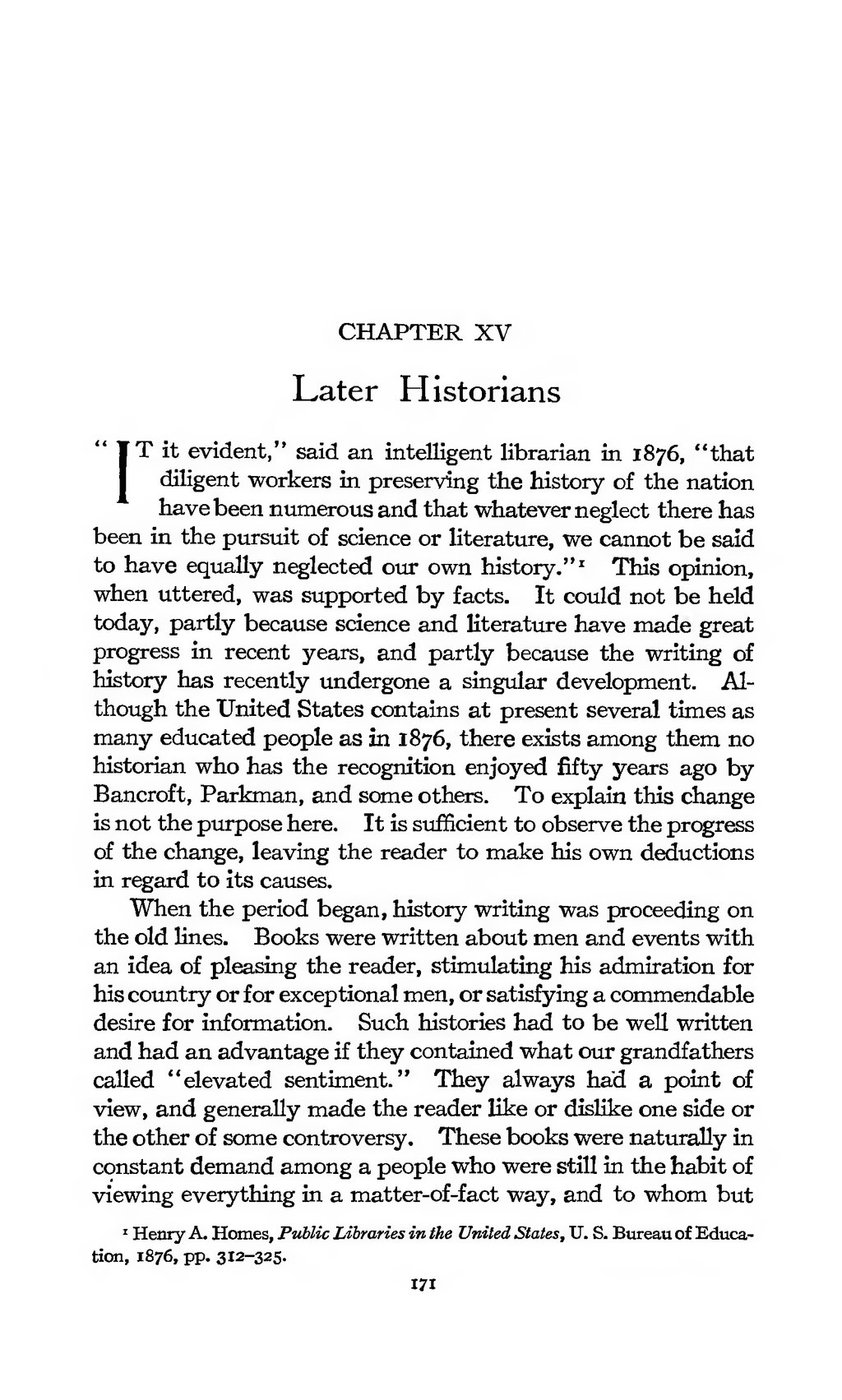CHAPTER XV
Later Historians
"IT it evident," said an intelligent librarian in 1876, "that diligent workers in preserving the history of the nation have been numerous and that whatever neglect there has been in the pursuit of science or literature, we cannot be said to have equally neglected our own history."[1] This opinion, when uttered, was supported by facts. It could not be held today, partly because science and literature have made great progress in recent years, and partly because the writing of history has recently undergone a singular development. Although the United States contains at present several times as many educated people as in 1876, there exists among them no historian who has the recognition enjoyed fifty years ago by Bancroft, Parkman, and some others. To explain this change is not the purpose here. It is sufficient to observe the progress of the change, leaving the reader to make his own deductions in regard to its causes.
When the period began, history writing was proceeding on the old lines. Books were written about men and events with an idea of pleasing the reader, stimulating his admiration for his country or for exceptional men, or satisfying a commendable desire for information. Such histories had to be well written and had an advantage if they contained what our grandfathers called "elevated sentiment." They always had a point of view, and generally made the reader like or dislike one side or the other of some controversy. These books were naturally in constant demand among a people who were still in the habit of viewing everything in a matter-of-fact way, and to whom but
- ↑ Henry A. Homes, Public Libraries in the United States, U. S. Bureau of Education, 1876, pp. 312-325.
